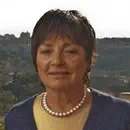
I have just finished reading Baderech, Along the Path of Teshuvah by Rabbi Judah Mischel (Mosaica Press) and the only one word description I can come up with is the almost untranslatable: Gevaldig!!*
Find this book and read it – you may not have tears in your eyes half the time as I did (sometimes, admittedly, because I had known and revered some of the recent rabbinic figures quoted), but I predict that there will be unshed tears in your heart, that the ideas and stories will lodge in your mind and soul and that this book will stay with you long after you finish reading it the first time. There is no way I can do it justice, but I will try.
Rabbi Mischel sees Teshuvah, not only as it is usually translated - "repentance" – but in its literal meaning -"return" - a lifelong project, a continuous journey. In presenting this concept, he can rely on the words of many Torah giants. Israel's first Chief Rabbi and founding Rosh Yeshiva of Merkaz HaRav, Rabbi Avraham Yitzchak HaCohen Kook zts"l in his seminal work, Orot HaTeshuvah, views Teshuvah as a lifelong process through we return to what we were to be and can be, each of us to his true self and the entire Jewish People towards the fulfillment of its mission on earth.
Teshuvah's scope, in Rabbi Mischel's analysis, accompanies us all year long, subsuming the month of Elul and the Ten Days of Repentance which we traditionally associate with the word. It means we are constantly on the way, baderech – to uncover what is hidden in the depths of our souls, to return, lashuv, to the potential for being the person we can be, the one Hashem wants us to be, each of us with our own personality, abilities, aspirations, desires, challenges and failures.
And on the way, as Jews are wont to do, we tell stories...
Rabbi Mischel's success in expounding upon the idea of Teshuvah is due to his incisive writing, of course, but in no small part due to the carefully chosen stories that illuminate each of his points as well. The book is filled with the most beautiful and varied vignettes, quotes and even poems that draw the reader into a deeper understanding of and emotional identification with the subject matter they enhance.
There are beautiful stories about the Baal Shem Tov, the Maggid Memezritch, Rav Avraham HaCohen Kook, Chabad Rabbonim, Rav Shimshon Refael Hirsch, the Izhbitza, the Aish Kodesh Hy"d, the Tosher Rebbe, Rabbi Shlomo Zalman Auerbach, Rabbi Adin Steinsaltz, Rabbi Shlomo Freifeld, Rabbi Nachman and Reb Nosson, Rav Shlomo Carlebach - and many more - and other figures such as Shai Agnon and Rabbi A.J. Heschel. There are apt and applicable quotes from external sources such as Jung, William Blake, even the Wizard of Oz, showing the rabbi's broad literary knowledge (as the Midrash says, chochma bagoyim taamin – believe that there is wisdom among non-Jews) .
All this makes the book, despite its most profound messages, a spellbinding and fascinating page turner. One has to remember to stop in order to ponder, to stop and internalize, stop and engage in introspection.
The hassidic master and humble tzaddik, Rabbi Zusha of Anapoli, said that the 5 Hebrew letters making up the word Teshuvah (tav, shin, vav, bet, heh) allude to 5 concepts, each beginning with one of the five letters, concepts which serve as guideposts on the road upon which our life's journey takes place.
Rabbi Mischel has made them the framework for his book, with a section on Temimus – wholeheartedness in serving Hashem and in life; one on Shivisi – our never being alone and without Hashem; one onVeahavta –loving the other and ourselves; one on Bechol drachecha daehu, feeling Hashem's influence on all our paths; and Hatznea – revelation through concealment.
How does this play out in the book? Rabbi Mischel divides each concept into components and elaborates upon them – and to give you a taste of what lies in store when you read the book, below is a partial sample of chapter headings and a sentence or two from some of the chapters
Tav: Temimus:
Where? "Certainly G-d is present in this place," says Yaakov Avinu after his dream– and his words resonate over the ages. However, the real question is - are we?
Enough: "Do your students have enough," the American chaplain asked the Klausenberger Rebbe who taught Torah in the concentration camp in which he had been incarcerated (losing his wife and 11 children) after its liberation."I teach them not to need anything," he replied, "so they naturally have everything they need."
The Torah of Temimus: Rabbi Soloveitchik said: "The giants of Torah, when it came to faith became little children " while Rabbi Lichtenstein's son Moshe, eulogized his father saying: "As sophisticated and sharp as he was, he embodied the middah of temimus, honesty, childlike purity, innocence and wonder!"
Shin: Going on, what better time to think aboutShivisi, with which we begin each day by saying Modeh Ani, than the COVID-19 challenge the world has faced and is facing? Rabbi Shimshon Refael Hirsch's words on shul attendance are one of the ways Rabbi Mischel's Shivisi incorporates wisdom gained during the COVID pandemic.
Vav: One of the explanations of the meaning of love in the section called Veahavta is learned by Reb Moishe Leib of Sassov from two peasants sitting in a bar, when one asks the other if he loves him and sadly answers himself, explaining: "If you truly loved me you would know that I'm in pain… you would know what's hurting me."
Love also means tzu farginen**.and is embodied in the love and respect to be seen between the two very different holy brothers, Reb Zusha (Zusia in Yiddish, meaning sweet) and Reb Meilech (Reb Elimelekh MiLizansk).
Bet: What can best illustrate the book's exposition of Bechol Drachecha Daehu- involve Him on all your paths? For me, it is the story of Rav Chaim Shmuelevitz, the Mirrer Rosh Yeshiva, who stopped to look in the window of a children's clothing store on his path to the Beis Midrash instead of his usual behavior of concentrated cogitation on the sugya (Talmud topic) he was about to discuss. A student saw him fixated on a pair of toddler's shoes and asked of what interest they could be. Tears welled up in Rav Chaim's eyes as he turned to the student smilingly: 'Imagine a young mother passing by these shoes..what she might be feeling thinking about her child walking to cheder for the first time, embarking on a life of Torah and mitzvos,…her joy, expectations and apprehensions…' and perhaps, Rabbi Mischel adds, we can also perceive the sorrow of the mother who sadly is unable to afford the shoes, or the woman davening for a child who looks at them with heartache and yearning.
Heh: The deeper levels of Hatznea Lechetare in Rabbi Nachman's message: "When do I have meditation? When everyone is standing around me and I am sitting among them. That is when I seclude myself with God – in 'a still, small voice.' And my voice is heard from one end of the world to the other. And none of the people around me hear anything at all."
Spiritually inspiring and deeply enriching, the book poses a challenge at the same time. After all, which of us can aspire to reach these levels of Teshuvah? We have to try, but who knows? Comfort can be found in the concept of a partial, perhaps fleeting and unfulfilled desire for Teshuvah, hirhurei teshuva, whose worth our Sages recognized. Rabbi Kook, the book tells, was surprised to see Eliezer ben Yehuda the non-observant "father of modern Hebrew" at his door of his study one day and said spontaneously – 'perhaps the time has come for you to do Teshuvah?' Ben Yehuda, taken aback, said only "Perhaps" but died that evening, and Rabbi Kook said that the one word of hirhur teshuva provided a great merit for his soul.
Throughout our lives, writes Rabbi Mischel, we engage in creative dialogue in our search for meaning. Depending on our stage in life and state of mind, what we are looking for and what we are open to hearing, the message of Torah and revelation of Hashem in our lives will iterate differently. Perhaps, he says, this is the intent of having "Anochi" as the first word of the Ten Commandments instead of "Ani" – it can be rearranged to form "KeAni" – I am like this – that is, I am like this at this moment in history and stage of your life, and later, depending on where your spiritual level is, I am like this again.
I asked Rabbi Mischel - (a widely admired teacher who is Executive Director of Camp HASC, the Hebrew Academy for Special Children – the Jewish community’s premier Summer program for individuals with special needs, and founder of Tzama Nafshi, an organization dedicated to connecting Jews with their Heritage and each other) - what motivated him to write the book, and he replied: "I started writing for myself, keeping notes as a means to try and live with Rebbe Zusha's instructions for a positive and practical Teshuvah formula."
"Rav Kook wrote that all books, and all of the knowledge that is expressed externally from oneself exists only to help awaken the "ruach hapnimi" , one's inner spirit and to bring to light that which is hidden deep within us. I tried to write this book with temimus, as naturally as possible, with my own words and voice, and hope some of it might resonate in others."
"I continue to daven that readers will find a good idea, story or Torah nugget they'll enjoy – and that will make all the effort worthwhile."
Rest assured, they will.
Rochel Sylvetsky made aliya to Israel with her family in 1971, coordinated Mathematics at Ulpenat Horev, worked in math curriculum planning at Hebrew U. and as academic coordinator at Touro College Graduate School in Jerusalem. She served as Chairperson of Emunah Israel and was CEO of Kfar Hassidim Youth Village. Upon her retirement, Arutz Sheva asked her to be managing editor of the English site, a position she filled for several years before becoming Senior Consultant and Op-ed and Judaism editor. She serves on the Boards of Orot Yisrael College and the Knesset Channel.
Word meanings:
* gevaldig - inspiring, remarkable
**farginen - unselfish joy in another's success
